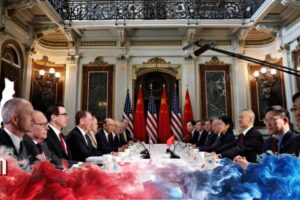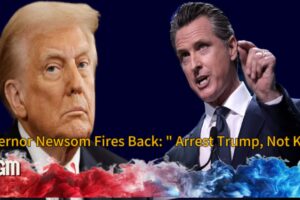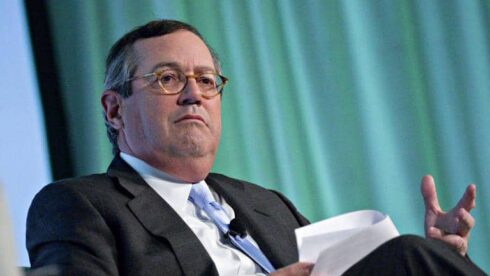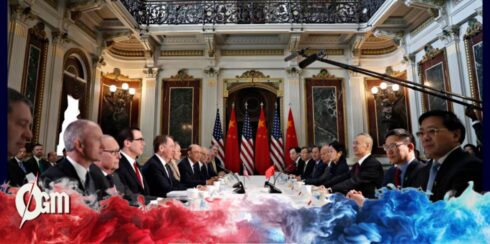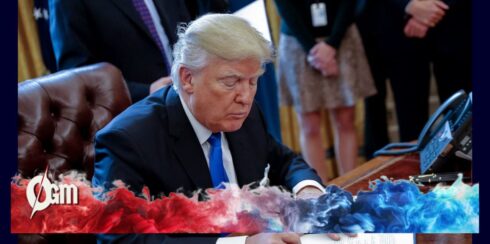President-elect Donald Trump has made a significant diplomatic move by nominating Warren Stephens, CEO of Arkansas-based investment bank Stephens Inc., to serve as the United States Ambassador to the United Kingdom. This nomination follows a long-standing tradition of presidents appointing prominent political donors and supporters to prestigious diplomatic posts. Historically, such ambassadorial appointments have been viewed as both a reward for political loyalty and a strategic method of placing trusted individuals in critical international representation roles.
The selection of Warren Stephens is particularly noteworthy given his complex political history with Trump. In 2016, Stephens initially supported opposing political groups that sought to prevent Trump’s presidential campaign. However, he has since aligned himself with the former president, demonstrating a remarkable political transformation that culminates in this high-profile nomination. This shift underscores the dynamic and often unpredictable nature of political allegiances in contemporary American politics.
Financial Backing and Political Evolution: Warren Stephens’ Journey to Diplomatic Candidacy
Warren Stephens’ political contributions reveal a nuanced trajectory of support and strategic positioning. Initially donating approximately $4 million to groups attempting to block Trump’s initial presidential run, Warren Stephens later pivoted to support the former president’s political agenda. His recent financial contributions, including over $2 million to a political action committee supporting Nikki Haley’s presidential campaign, highlight the complex landscape of Republican Party politics.
The nomination reflects Trump’s consistent approach of rewarding loyal supporters with significant governmental roles. Warren Stephens’ background as a successful investment banker and philanthropist, coupled with his family’s foundation’s charitable work supporting educational and cultural institutions, potentially positions him as a credible diplomatic representative. His statement expressing pride in potentially serving the country and strengthening the U.S.-UK alliance underscores the strategic importance of this ambassadorial appointment.
The Strategic Importance of the UK Ambassador Role
The United States Ambassador to the United Kingdom represents one of the most prestigious diplomatic positions in the international arena. This role is crucial in maintaining and nurturing the long-standing “special relationship” between the two nations, characterized by deep military, intelligence, and cultural connections. Trump’s “America-first” foreign policy approach adds an additional layer of complexity and significance to this diplomatic appointment.
Previous administrations have similarly utilized this ambassadorial position to strengthen bilateral relations. During Trump’s first term, Woody Johnson, owner of the New York Jets, served in this role, while Barack Obama appointed Louis Susman, a prominent Democratic Party fundraiser. Warren Stephens’ potential appointment continues this tradition of selecting influential private sector leaders to represent American interests in the United Kingdom.
Philanthropic Background and Potential Diplomatic Impact
Warren Stephens brings more than just political connections to this potential diplomatic role. Through the Harriet and Warren Stephens Family Foundation, he has demonstrated a commitment to supporting educational and cultural institutions, including the Arkansas Museum of Fine Arts and the University of Mississippi. This philanthropic background could prove advantageous in fostering people-to-people connections and cultural diplomacy between the United States and the United Kingdom.
The nomination, pending formal approval, represents a strategic choice that blends political loyalty, financial expertise, and philanthropic experience. Warren Stephens’ potential ambassadorship could provide a unique perspective in maintaining and potentially reshaping the diplomatic dialogue between these two key allied nations. His ability to navigate complex political landscapes and his demonstrated adaptability might prove instrumental in implementing Trump’s foreign policy vision.
Which is aimed at prioritizing American interests in the framework of its international relations with the United Kingdom and Europe at large, a focus that will be pivotal to the Trump administration and U.S. interests.


